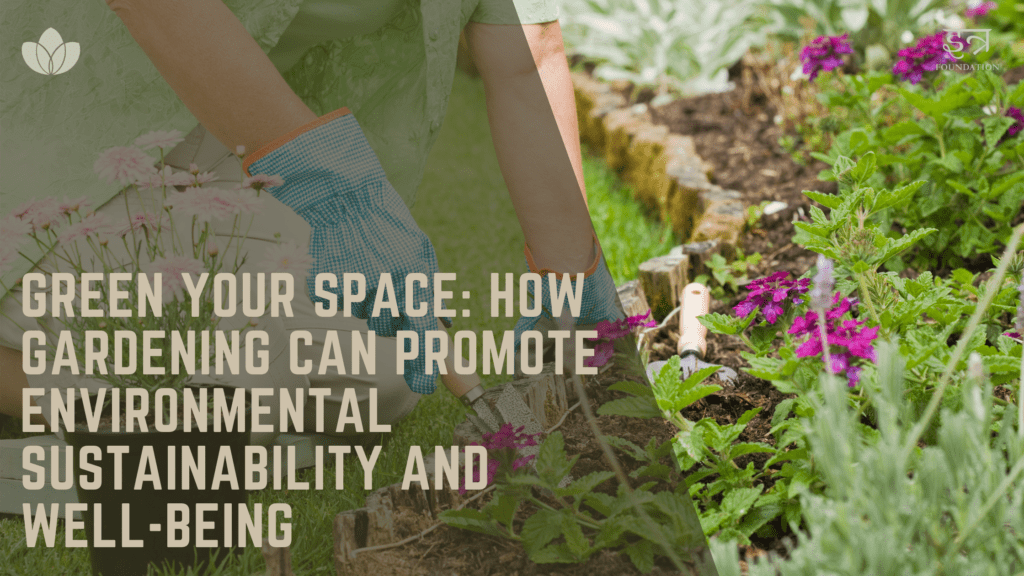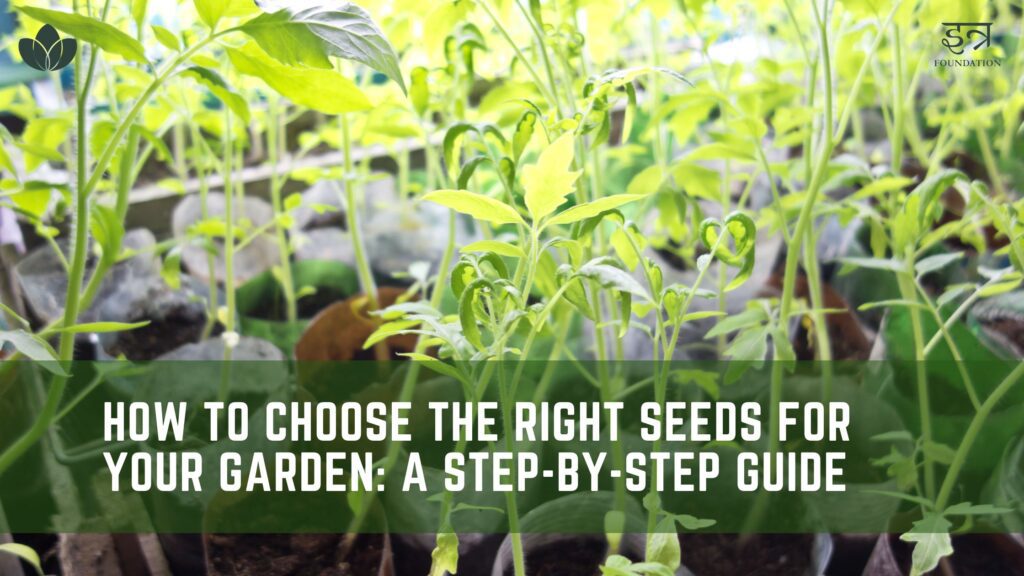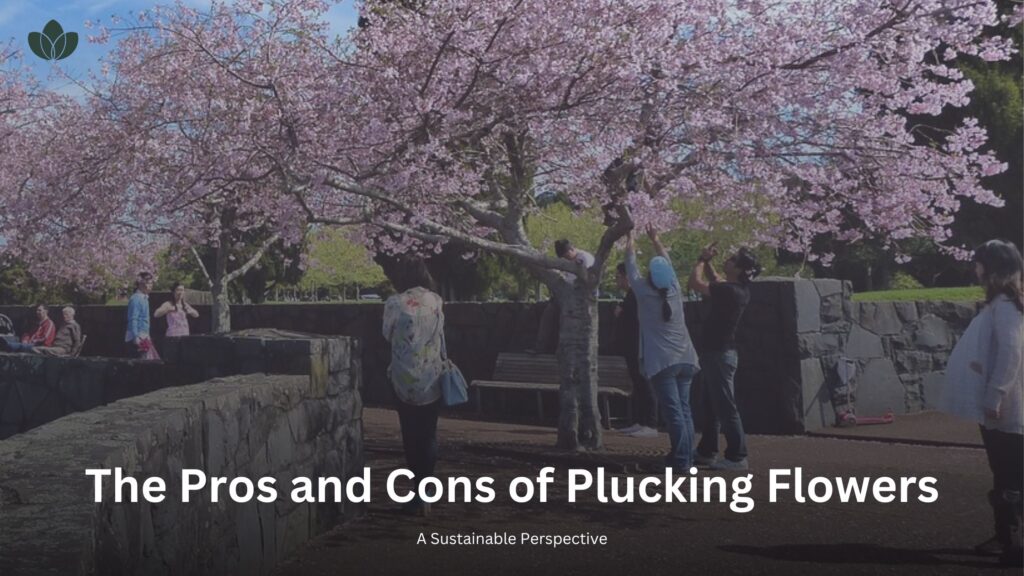Gardening has long been considered a hobby, but it is a powerful tool for promoting environmental sustainability and preserving natural resources. Not only does gardening improve the health of the soil and promote biodiversity, but it also helps to sequester carbon, reduce greenhouse gas emissions, and promote mental well-being. By growing our own fruits and vegetables, we can reduce our carbon footprint associated with the transportation and packaging of produce. Moreover, gardening allows us to reconnect with nature and appreciate the beauty and importance of the natural world in our daily lives. By supporting sustainable gardening practices and promoting environmental friendly gardening in our communities, we can make a positive impact on the environment and future generations. One of the most significant ways is by promoting soil health and fertility. When gardens are well-maintained, the soil is able to retain moisture and nutrients more effectively, which leads to healthier plant growth and a reduction in the need for chemical fertilizers. Additionally, using natural gardening methods such as composting can improve soil structure, fertility and reduce the amount of waste sent to landfills.

Soil health
Soil health is a crucial aspect of gardening and plays a vital role in the overall health and productivity of a garden. The practice of gardening can help promote soil health by:
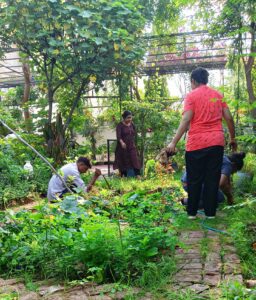
- Adding organic matter to the soil
- Improving its structure
- Use of natural gardening methods
Adding organic matter to the soil: Organic matter is essential for maintaining the balance of microorganisms and nutrient levels in the soil. These microorganisms, such as bacteria and fungi help in breaking down organic matter and making nutrients available to plants.
Improving its structure: Gardening also helps to improve the structure of the soil by promoting the growth of beneficial microorganisms such as rhizobia, mycorrhizal fungi, actinomycetes, diazotrophic bacteria that maintain symbiotic relations with others, promote nutrient mineralization and availability, produce plant growth hormones and are antagonists of plant pests, parasites or diseases. It also helps in increasing the number of earthworms and other soil-dwelling organisms. This improves the aeration and water-holding capacity of the soil, making it more conducive for plant growth. Additionally, gardening can also help to prevent soil erosion by promoting the growth of plants that hold the soil in place.
One of the key ways to promote soil health in gardening is through the use of natural gardening methods. This includes practices such as composting, crop rotation and the use of natural fertilizers and pest control methods. Composting, for example, is a great way to add organic matter to the soil and improve its fertility. Crop rotation helps to prevent the depletion of soil nutrients and reduce the risk of pests and diseases. Using natural fertilizers and pest control methods, such as companion planting and the use of natural predators, can also help to promote soil health while minimizing the use of harmful chemicals.
The role of gardening in promoting biodiversity in urban areas
 Biodiversity refers to the variety of life found within an ecosystem. In urban areas, the natural biodiversity can be limited due to human development and land use changes. Urban environments often lack the natural habitats and diverse ecosystems found in rural areas, making it difficult for many species of plants and animals to thrive. However, there are no. of ways gardening can play a key role in promoting biodiversity in these areas by providing habitats and food sources for a variety of species.
Biodiversity refers to the variety of life found within an ecosystem. In urban areas, the natural biodiversity can be limited due to human development and land use changes. Urban environments often lack the natural habitats and diverse ecosystems found in rural areas, making it difficult for many species of plants and animals to thrive. However, there are no. of ways gardening can play a key role in promoting biodiversity in these areas by providing habitats and food sources for a variety of species.
- Plantation of native plants: One-way gardening promotes biodiversity is through the planting of native plants. Native plants are those that are naturally found in a particular region and have evolved to be well-suited to the local climate and soil conditions. These plants provide important habitats and food sources for native wildlife, such as insects, birds and small mammals. By incorporating native plants into gardens and landscapes, gardeners can provide valuable habitats for these species and promote biodiversity in urban areas.
- Promotion of wild pollinators: Pollinators, such as bees, butterflies, and hummingbirds, play a vital role in the ecosystem by helping to pollinate plants and ensure their reproduction. Many wild pollinator populations have been declining due to habitat loss and the use of pesticides. By creating a diverse array of flowering plants in gardens, gardeners can provide food and habitat for wild pollinators, helping to support their populations and promote biodiversity in urban areas.
- Providing habitats: Gardening can also promote biodiversity by providing habitats for other organisms such as amphibians, reptiles, birds and small mammals. This is possible by creating different microhabitats within a garden such as birdhouses, bat boxes, and ponds.
Carbon sequestration
Carbon sequestration refers to the process of capturing and storing carbon dioxide (CO2) from the atmosphere. Gardening plays a crucial role in carbon sequestration by promoting the growth of plants, which absorb CO2 through the process of photosynthesis and store it in their biomass. The carbon stored in the biomass of plants is known as “sequestered carbon” and it can remain stored for many years, depending on the type of plant and the conditions under which it is grown.
Sustainable gardening practices such as composting and reducing the use of chemical fertilizers can help:
- Reduced carbon footprint: Composting and reducing the use of chemical fertilizers can decrease the number of greenhouse gases emitted into the atmosphere.
- Healthier soil: Sustainable gardening practices such as composting can improve soil health by increasing the amount of organic matter and beneficial microorganisms in the soil.
- Lower water usage: Sustainable gardening practices such as reducing the use of chemical fertilizers can decrease the need for irrigation and water usage.
- Cooling the Concrete Jungle: Reduce the urban heat island effect by providing shade and cooling the surrounding environment which in turn reduces the need for air conditioning and helps to decrease greenhouse gas emissions.
- Less pollution: Sustainable gardening practices can decrease the number of harmful chemicals and pollutants that end up in our water and soil.
- Promotes biodiversity: Sustainable gardening practices such as planting native plants can promote biodiversity by providing habitats for local wildlife.
- Cost-effective: Sustainable gardening practices such as composting can be a cost-effective way to provide nutrients to plants.
- Chemical-free: Sustainable gardening practices such as composting and reducing the use of chemical fertilizers can provide chemical-free produce.
- Healthy produce: Sustainable gardening practices can produce healthier produce as it is grown without the use of harmful chemicals.
- Self-sustaining: Sustainable gardening practices such as composting can create a self-sustaining ecosystem in your own backyard.
- Promoting the growth of green spaces in urban areas can help to reduce the amount of stormwater runoff, which can lead to flooding and erosion.
The role of gardening in promoting mental health
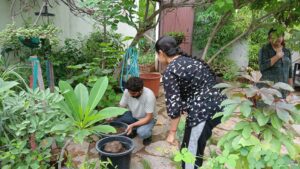
Studies have shown that spending time in nature and engaging in activities such as gardening can have a positive impact on mental health and well-being. Some of the key benefits of gardening on mental health include:
- Reducing stress and anxiety: Gardening provides a sense of calm and tranquility, allowing individuals to disconnect from the stressors of daily life and focus on the present moment.
- Improving mood: Engaging in gardening activities can boost mood and improve overall emotional well-being.
- Enhancing cognitive function: Gardening is an activity that requires focus and attention, which can help improve cognitive function and reduce the risk of cognitive decline.
- Promoting a sense of purpose: Gardening provides a sense of accomplishment and can give individuals a sense of purpose and meaning, which can be particularly beneficial for those who may be struggling with mental health issues.
- Providing social connections: Gardening can be a social activity, allowing individuals to connect with others who share a passion for gardening and nature.
- Encouraging self-care: Gardening is an activity that requires individuals to take care of themselves, which can help promote self-care and self-compassion.
In conclusion, gardening is not just a hobby, but a powerful tool for promoting environmental sustainability and preserving natural resources. From improving soil health to promoting biodiversity and sequestering carbon to promoting mental well-being, gardening has many benefits that can help to make our planet a healthier and more sustainable place. By supporting sustainable gardening practices and promoting environmental friendly gardening in our communities, we can make a positive impact on the environment and future generations.
ITRA encourages everyone to start their own garden at home, whether it’s a small balcony or a backyard. Indulge in natural green activities and start by getting in touch with local environmental NGOs of your locality to be a part of the community which is conscious of its actions and aware of its natural habitat. By connecting with nature, we can improve our own health and well-being, while also making a positive impact on the environment. So, let’s start gardening and make a difference!


